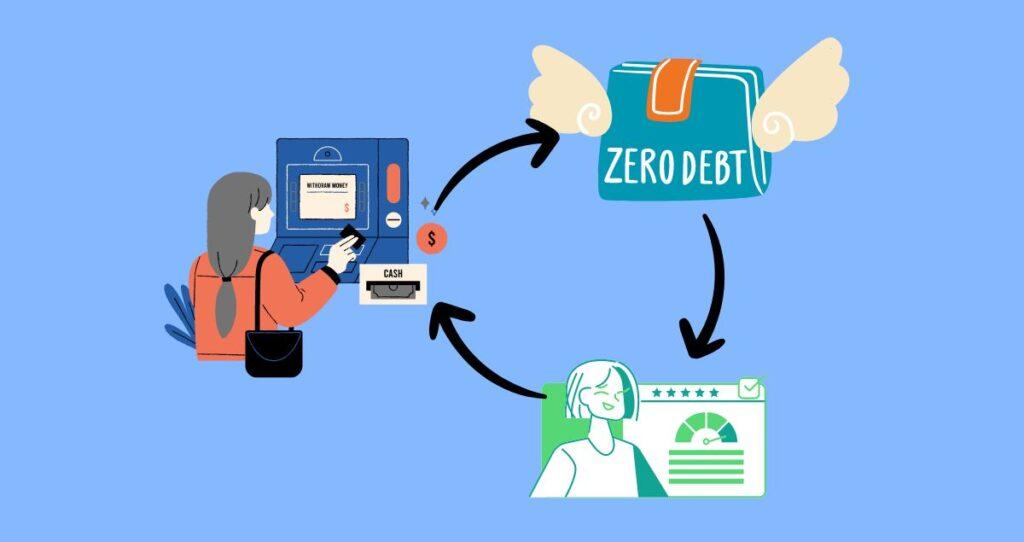A thin credit file is a term used on people who are new to credit or never had any form of credit such as credit cards, loans, etc. You have a thin file when your credit reports do not have enough information that can help lenders to determine your creditworthiness.
Credit reporting bureaus (TransUnion, Equifax, and Experian) and other credit reporting agencies calculate your credit scores using information from your credit reports. Having little to no information on your credit reports might result in having no credit score. For this reason, lenders might deny you credit when you have a thin credit file.
Key takeaways
- A thin credit file means that you have little to no information on your credit reports
- People with thin credit files are usually those getting started with credit, have few credit accounts with minimal activities, or make purchases using cash more than their credit cards.
- Lenders use your credit score to calculate your creditworthiness and the interest rate you pay on your loans.
- Having a thin credit file disqualifies you from getting loans, credit cards, mortgages, personal loans, etc.
- You can improve a thin credit file by becoming an authorized user on a credit card, getting a secured credit card, using a co-signer, cleaning up your credit reports, or by getting a credit builder loan.
Lenders use your credit score to estimate the risks associated with lending you money. A thin file does not offer enough information to evaluate the risk you pose as a borrower. As a result, you might find yourself getting denied credit by almost every lender.
What is a thin credit file?
Creditors and other companies that manage your credit accounts report your activities to major credit reporting bureaus. Credit bureaus put all that information in a format that is easy to read and understand which is your credit report. Next, major reporting bureaus and other credit rating agencies use some information from your credit reports to calculate your credit scores using credit scoring models.
When you don’t have enough information on your credit reports, it is said that you have a thin credit file. In other words, your credit reports are either empty or do not have enough credit activities on them. This could be due to some of the following reasons.
- You are getting started with credit,
- You don’t have enough credit accounts
- There are not enough credit account activities on your credit reports
- Don’t have credit account activities at all.
- You only use cash
Having a thin credit file for a long time is risky especially when you plan on borrowing money. Lenders use your credit history and credit score to access if you are financially responsible. A thin credit file does not offer much information about how you behave when it comes to debt. For this reason, many lenders will deny you credit. If you have thin credit, make sure that you improve it before you apply for a credit card, mortgage, or any other form of credit.
How can I improve a thin credit file?
Having a thin credit file can prevent you from qualifying for credit. Unless you are thinking about using cash your entire life, you need to improve your thin credit file.
The following are some of the tips you can use to improve a thin credit file.
1. Get a credit builder loan
A credit builder loan is a type of loan where the money is deposited in a savings account rather than giving you the money right away. With this setup, you make required monthly payments and receive the money once you have finished paying it off. Your payments will include possible fees and interests. The interest rates on credit builder loans range between 6% to 16% and their terms are usually from 6 months to 2 years.
This option is good for people who cannot qualify for other forms of loans due to bad credit history or having no credit at all. As you make your payments, the lender will report your account activities to credit reporting agencies which will help you improve your thin credit file, build a credit history, and increase your credit score.
People with thin credit files find it difficult to qualify for credits. A great tip you can use to improve a thin credit file is to become an authorized user of a credit card. As an authorized user, you will be added to someone else credit card. You will then receive your own credit card that is tied to the original account. As an authorized user, you will not be responsible for making payments or any activities on the account.
Although you will not be responsible for activities on the account, you must use your credit card responsibly to avoid hurting the account owner’s credit. Some credit card issuers will report your activities to major credit bureaus which might help you improve a thin credit file.
Before you become an authorized user, make sure that the card issuer reports authorized user activities to credit reporting agencies. In addition, you should sign up for someone’s account who has a good credit score and solid credit history. Otherwise, it might be difficult for you to build a good credit history and credit score.
3. Clean up your credit reports
One of the best ways to improve your credit history is to clean up your credit reports. It is possible that you have a thin credit file because of missing information or errors in your reports. If this is the case, check your credit reports and dispute errors, inaccuracies, and fraudulent activities in your credit reports. This process alone might help you improve your thin credit file and increase your credit score.
Related: How to get a free copy of your annual credit report?
4. Use a co-signer to improve a thin credit file
Lenders cannot trust you with their money if you don’t have enough information on your credit reports. Having another person creditors can trust such as a co-signer could be your only choice. A co-signer is a person who attests on your behalf in order to get credit. The co-signer will clarify that you are a good person, you take great care of your finances, you make payments on time, etc. This good information will help lenders eliminate some restrictions they have against you and give you credit.
A good co-signer is a person who is financially responsible. That is he/she has a good credit score, solid credit history, and significantly higher income. You should avoid using someone who is struggling financially as a co-signer. Co-signers usually take responsibility on your behalf. That is why he/she needs to be someone banks and lending institutions can trust.
5. Have your utilities and rent payments reported to credit bureaus
An easy and less risky way to improve a thin credit file is to have your rent and utility payments reported to major credit bureaus. When it comes to building your credit, every little tip helps. Your monthly payments on utilities and other accounts can be reported and help you build credit.
6. Get a starter credit card
There are credit card issuers who offer starter credit cards. Usually, starter credit cards are for people with a little credit history or those who are getting started. In order words, if you have a thin credit file, you will need to start from somewhere. Credit card issuers will require you to have a good source of income before they approve you for a starter credit card.
These cards usually come with lower credit limits. Once you have built enough credit history and have enough information on your credit reports, you will qualify for better credit cards with higher limits. Besides credit cards, an improved credit history will give access to other forms of loans such as auto loans, mortgages, personal loans, etc.
7. Get a secured credit card
Secured credit cards are some of the best options for people with thin credit files. A secured credit card is like any other credit card with minor modifications. The term “secured” means that a security deposit is required before you can open a credit card account.
Secured credit cards come with lower credit limits and some lenders give you a credit limit equal to your security deposit. As you use your credit card, the account activities will be reported to major credit bureaus which in the end will help you build credit history and boost your credit score.
The bottom line
A thin credit file means that you don’t have enough information on your credit reports. People who are getting started with credit or have a few credit accounts with minimal activities often have thin credit files. A thin credit file will result in insufficient credit history and probably no credit score.
It becomes difficult for creditors to estimate how risky it is to lend you money when you have a thin credit file. For this reason, most lenders will deny you credit.
You can improve a thin credit file by becoming an authorized user on a credit card, getting a secured credit card, using a co-signer, cleaning up your credit reports, or by getting a credit builder loan.









